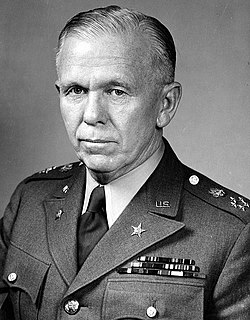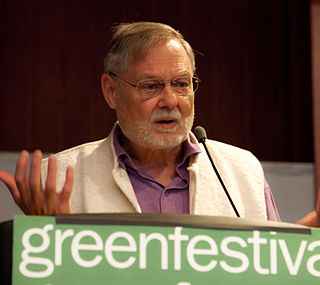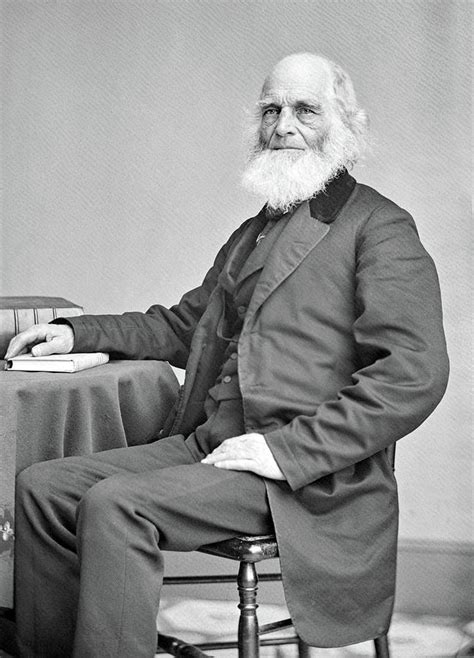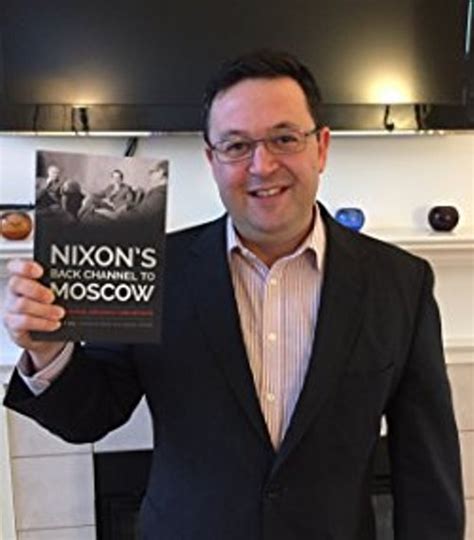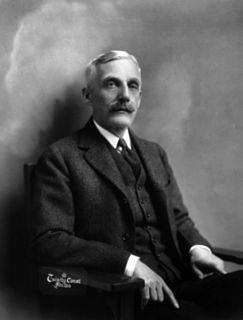Top 651 Avoiding Quotes & Sayings - Page 11
Explore popular Avoiding quotes.
Last updated on April 20, 2025.
But you can’t get to any of these truths by sitting in a field smiling beatifically, avoiding your anger and damage and grief. Your anger and damage and grief are the way to the truth. We don’t have much truth to express unless we have gone into those rooms and closets and woods and abysses that we were told not go in to. When we have gone in and looked around for a long while, just breathing and finally taking it in – then we will be able to speak in our own voice and to stay in the present moment. And that moment is home.
Warren Buffett likes to say that the first rule of investing is "Don't lose money," and the second rule is, "Never forget the first rule." I too believe that avoiding loss should be the primary goal of every investor. This does not mean that investors should never incur the risk of any loss at all. Rather "don't lose money" means that over several years an investment portfolio should not be exposed to appreciable loss of principal.
The course of a great statesman resembles that of navigable rivers, avoiding immovable obstacles with noble bends of concession, seeking the broad levels of opinion on which men soonest settle and longest dwell, following and marking the almost imperceptible slopes of national tendency, yet always aiming at direct advances, always recruited from sources nearer heaven, and sometimes bursting open paths of progress and fruitful human commerce through what seem the eternal barriers of both.
There has been considerable comment over the awarding of the Nobel Peace Prize to a soldier. I am afraid this does not seem as remarkable to me as it quite evidently appears to others. I know a great deal of the horrors and tragedies of war. ... The cost of war in human lives is constantly spread before me, written neatly in many ledgers whose columns are gravestones. I am deeply moved to find some means or method of avoiding another calamity of war.
Here are some questions I am constantly noodling over: Do you splurge or do you hoard? Do you live every day as if it's your last, or do you save your money on the chance you'll live twenty more years? Is life too short, or is it going to be too long? Do you work as hard as you can, or do you slow down to smell the roses? And where do carbohydrates fit into all this? Are we really all going to spend our last years avoiding bread, especially now that bread in American is so unbelievable delicious? And what about chocolate?
Avoiding problems doesn't make them go away - you think it does, but it really doesn't. They're just postponed. Those problems just stay inside your subconscious and brew until your body gets to a point where it's had enough and decides to release some of the stress itself. That's what an anxiety attack is! It happens when you don't know how to vent your frustration, fears, stress, sadness, madness, whatever it is that bothers you, the things you should be confronting and getting closure with. If you don't confront these things and deal with them, your body does it for you.
When a person's primary objective is to maximize material pleasures while minimizing discomforts, then life becomes a constant process of "pushing" (trying to push away from discomforts) and "grabbing" (trying to acquire or hold on to that which gives pleasure). With the loss of inner balance that accompanies a habitual "pushing and grabbing" approach to life, a deeper pain ensues-that of becoming aware of the ultimate unsatisfactoriness of the pleasure-seeking/pain-avoiding process itself.
There are so many things that can provide us with peace. Next time you take a shower or a bath, I suggest you hold your big toes in mindfulness. We pay attention to everything except our toes. When we hold our toes in mindfulness and smile at them, we will find that our bodies have been very kind to us. We know that any cell in our toes can turn cancerous, but our toes have been behaving very well, avoiding that kind of problem. Yet, we have not been nice to them at all. These kinds of practices can bring us happiness.
You can live a lifetime and, at the end of it, know more about other people than you know about yourself. You learn to watch other people, but you never watch yourself because you strive against loneliness. If you read a book, or shuffle a deck of cards, or care for a dog, you are avoiding yourself. The abhorrence of loneliness is as natural as wanting to live at all. If it were otherwise, men would never have bothered to make an alphabet, nor to have fashioned words out of what were only animal sounds, nor to have crossed continents - each man to see what the other looked like.
Much has seen said of the wisdom of old age. Old age is wise, I grant, for itself, but not wise for the community. It is wise in declining new enterprises, for it has not the power nor the time to execute them; wise in shrinking from difficulty, for it has not the strength to overcome it; wise in avoiding danger, for it lacks the faculty of ready and swift action, by which dangers are parried and converted into advantages. But this is not wisdom for mankind at large, by whom new enterprises must be undertaken, dangers met, and difficulties surmounted.
People have become afraid of love because in love also, death penetrates. If two lovers are sitting side by side in deep love and intimacy, not even talking.... Talking is an escape, an escape from love. When two lovers are talking that simply shows they are avoiding the intimacy. Words in-between give distance - with no words distance disappears, death appears. In silence there is death just lurking around - a beautiful phenomenon. But people are so afraid that they go on talking whether it is needed or not. They go on talking about anything, everything - but they cannot keep silent.
The photographer discovers himself/herself being photographed and we can guess he is uncomfortable. Unsuccessfully he/she tries to recompose his posture and to look like a photographer taking photos. But no, he is and continues to be a spectator. The momentous fact of being photographed leads him to becoming an actor. And, as always, actors must assume a role, which is only an elegant way of avoiding to say they must choose sides, choose a faction, take an option.
The pain that's created by avoiding hard work is actually much worse than any pain created from the actual work itself. Because if you don't begin to work on those ideas that God has blessed you with, they will become stagnant inside of you and eventually begin to eat away at you. You might seem OK on the outside, but inside you will be ill from not getting those ideas out of your heart and into the world. Stalling leads to sickness. But taking steps, even baby steps, always leads to success.
I've thought about it more than a thousand times. It was a thousand times worse, so I suppressed it, I suppressed it to death. The moment that I heard that Meahri was leaving, I thought the world was ending because at that moment, I was full of regret. I was avoiding, not thinking, and pretending it wasn't what my heart was hoping for earlier. I'm sorry, because I've made Meahri cry so many times. I'll do well. I'll take care of her forever. Tae-sang, this is my first and last request of you. Just this once, forgive me.
But every point of view is a point of blindness: it incapacitates us for every other point of view. From a certain point of view, the room in which I write has no door. I turn around. Now I see the door, but the room has no window. I look up. From this point of view, the room has no floor. I look down; it has no ceiling. By avoiding particular points of view we are able to have an intuition of the whole. The ideal for a Christian is to become holy, a word which derives from “whole.
Unfortunately, the greater consciousness among Whites about Black equality has not carried over to the new victims of racism - Muslims and Immigrants. There is no racial enlightenment for these groups, which are huge. Millions of Muslims and an equal number of immigrants, who whether legal or illegal, face discrimination both legally from the government and extra-legally from White Americans - and sometimes Black and Hispanic Americans. The Democratic Presidential candidates are avoiding these issues in order to cultivate support among White Americans.
A large part of parenting is about managing weariness and motivation. Much of the success of parenting is about avoiding the sins of "omission" as well as "commission." You can feed, clothe, and house your kids and not really parent them. When we raise kids for selfish reasons (to feel proud, to have people love us and appreciate us), if they disappoint us we'll pull back. But when we realize that God has called us to raise godly children and God is always worthy to be obeyed, we have a motivation that goes beyond our own pride and our own comfort.
It is easy to imagine that the Buddha, the awakened one, is something or somewhere other than here or that awakening to reality will happen sometime other than now. But as long as we continue to think in terms of time we will deceive ourselves. The you who is chasing enlightenment will never become enlightened.
Instead of striving towards some distant goal that you will never reach, I invite you to stop and ask: How am I avoiding the enlightenment that is already present in each moment? How am I seeing separation where it doesn't exist?
De-Christianizing America has been high on the progressive agenda, and, thanks to the government (especially the federal courts), it has been a great success. Nor can we overlook the contribution of the entertainment industry, which now determines what passes for 'culture.' The main practical vehicle of de-Christianization has been the Sexual Revolution. A few radicals have called for the abolition of the family, but most liberals have been more discreet, avoiding hostile rhetoric while quietly but constantly pursuing policies that result in lower birthrates and fatherless children.
Ever bike? Now that's something that makes life worth living!... Oh, to just grip your handlebars and lay down to it, and go ripping and tearing through streets and road, over railroad tracks and bridges, threading crowds, avoiding collisions, at twenty miles or more an hour, and wondering all the time when you're going to smash up. Well, now, that's something! And then go home again after three hours of it... and then to think that tomorrow I can do it all over again!
... I don't think anybody should avoid mistakes. If it is within their nature to make certain mistakes, I think they should make them, make the mistakes and find out what the cost of the mistake is, rather than to constantly keep avoiding it, and never really knowing exactly what the experience of it is, what the cost of it is, you know, and all the other facets of the mistake. I don't think that mistakes are that bad. I think that they should try and not do destructive things, but I don't think that a mistake is that serious a thing that one should be told what to do to avoid it.
A silence is needed before death, before life, before love. If you love a person you sit silently with the person. You would not like to chatter, you would like to just hold their hand and live and be silent in that moment. If you chatter, that means you are avoiding the person - love is not really there. If you love life, chattering will drop, because every moment is so filled with life that there is no way, no space to chatter. Each moment life is flooding you so vitally - where is the time to gossip and chatter?
With overwhelming military strength now deployed against him and with intense monitoring from space surveillance and the U.N. inspection team on the ground, any belligerent move by Saddam against a neighbor would be suicidal....If Iraq does possess such concealed weapons, as is quite likely, Saddam would use them only in the most extreme circumstances, in the face of an invasion of Iraq, when all hope of avoiding the destruction of his regime is lost.
Processes of avoiding the world within in order to try to regulate your behavior, or becoming entangled in your thoughts interfering with your ability to take advantage of what's around you, or losing contact with your values for fear that you'll know more about the places where you hurt - those kinds of processes are just normal psychological processes. And if you take the mode of mind that works great in 95 percent of your life and apply it within, it then implodes. It starts creating barriers, and that's true at work, it's true in our culture, true in our politics.
At the approach of danger two voices speak with equal force in the heart of man: one very reasonably tells the man to consider the nature of the danger and the means of avoiding it and the other, even more reasonable, says that it is too painful and harassing to think of the danger... better to turn aside from the painful subject till it has come, and to think of what is pleasant. In solitude a man generally yields to the first voice; in society to the second.
The peril of this century is spiritual apathy. As the body requires sunlight, good food, proper exercise and rest, so the spirit of man requires the sunlight of the Holy Spirit; proper exercise of the spiritual functions; the avoiding of evils that affect spiritual health, that are more ravaging in their effects than typhoid fever, pneumonia, or other diseases that attack the body.
They stared at her curiously, and she caught snatches of conversation in two or three languages. It wasn't hard to guess their content, and she smiled a bit primly. Youth, it appeared, was full of illusions as to how much sexual energy two people might have to spare while hiking forty or so kilometers a day, concussed, stunned, diseased, on poor food and little sleep, alternating caring for a wounded man with avoiding becoming dinner for every carnivore within range - and with a coup to plan for the end.
Humility is the safeguard of chastity. In the matter of purity, there is no greater danger than not fearing the danger. For my part, when I find a man secure of himself and without fear, I give him up for lost. I am less alarmed for one who is tempted and who resists by avoiding the occasions, than for one who is not tempted and is not careful to avoid occasions. When a person puts himself in an occasion, saying, I shall not fall, it is an almost infallible sign that he will fall, and with great injury to his soul.
Many writers-in-waiting spend a lot of time avoiding the work at hand. The most common way to avoid writing is by procrastination. This is the writer's greatest enemy. There is little to say about it except that once you decide to write every day, you must make yourself sit at the desk or table for the required period whether or not you are putting down words. Make yourself take the time even if the hours seem fruitless. Ideally, after a few days or weeks of being chained to the desk, you will submit to the story that must be told.
Making mistakes is part of learning to choose well. No way around it. Choices are thrust upon us, and we don't always get things right. Even postponing or avoiding a decision can become a choice that carries heavy consequences. Mistakes can be painful-sometimes they cause irrevocable harm-but welcome to Earth. Poor choices are part of growing up, and part of life. You will make bad choices, and you will be affected by the poor choices of others. We must rise above such things.
You can think of the Health Impact Fund as a mechanism that would keep the benefits and burdens of pharmaceutical innovation for the affluent roughly as they are while massively reducing the burdens presently imposed upon the poor. This sounds like magic. But it really works because the current system is not Pareto efficient. It's a system that generates hundreds of billions of dollars in litigation costs and deadweight losses that HIF-registered medicines would sidestep. By avoiding these losses, the HIF reform can bring improvements all around - including for pharmaceutical innovators.
If you want to really sort of quantify the dereliction of the Republican establishment, those two facts are the most important two facts. One, that they didn`t even understand the base of their own party, white working class voters who you know what, don`t care about tax cuts for the rich, really aren`t interested in the things that the elite part of their party want, including immigration reform. And number two, they spent eight months avoiding finding opposition research to use against the guy who was becoming the front-runner in their party that they don`t want.
Incidentally, I am intrigued by how many European and Latin American writers expressed their political views in the columns they routinely wrote or write in the popular press, like Saramago, Vargas Llosa, and Eco. This strikes me as one way of avoiding opinionated fiction, and allowing your imagination a broader latitude. Similarly, fiction writers from places like India and Pakistan are commonly expected to provide primers to their country's histories and present-day conflicts. But we haven't had that tradition in Anglo-America.
Most people have come to prefer certain of lifes experiences and deny and reject others, unaware of the value of the hidden things that may come wrapped in plain and even ugly paper. In avoiding all pain and seeking comfort at all costs, we may be left without intimacy or compassion; in rejecting change and risk we often cheat ourselves of the quest; in denying our suffering we may never know our strength or our greatness
I touched the combination lock. I concentrated so hard I felt like I was dead-lifting five hundred pounds. My pulse quickening. A line of sweat trickled down my nose. Finally I felt gears turning. Metal groaned, tumblers clicked, and the bolts popped back. Carefully avoiding the handle, I pried open the door with my fingertips and extracted an unbroken vial of green liquid. Hal exhaled. Thalia kissed me on the cheek, which she probably shouldn't haven't done while I was holding a tube of deadly poison. "You are so good," she said. Did that make the risk worth? Yeah, pretty much.
All of us are responsible to provide for ourselves and our families in both temporal and spiritual ways. To provide providently, we must practice the principles of provident living: joyfully living within our means, being content with what we have, avoiding excessive debt, and diligently saving and preparing for rainy-day emergencies. When we live providently, we can provide for ourselves and our families and also follow the Savior's example to serve and bless others.
As far as I know, most organizations are avoiding population issues because they're politically frightened by the charge that comes from some proponents of immigration that if you oppose the immigration policy we have now, you're a racist.. There is no way in the world we can forge a sustainable society without stabilizing the population. ... There's no practical way of stabilizing the population of the U.S. without reducing the immigration rate. When do we decide we have to do something, or do we wait until things are as bad here as they are in the countries people want to leave?
Unexplained pain may sometimes direct our attention to something unacknowledged, something we are afraid to know or feel. Then it holds us to our integrity, claiming the attention we withhold. The thing which calls our attention may be a repressed experience or some unexpressed and important part of who we are. Whatever we have denied may stop us and dam the creative flow of our lives. Avoiding pain, we may linger in the vicinity of our wounds, sometime for many years, gathering the courage to experience them.
The philosophy of praxis does not aim at the peaceful resolution of existing contradictions in history and society, but is the very theory of these contradictions. It is not the instrument of government of the dominant groups in order to gain the consent and exercise hegemony over the subaltern classes. It is the expression of subaltern classes who want to educate themselves in the art of government and who have an interest in knowing all truths, even the unpleasant ones, and in avoiding the impossible deceptions of the upper class, and even more their own.
Your closest relationships are often the ones that have the most effect on you, but they are frequently the ones most difficult to change. These relationships are complex and have long histories. Lifetime habits of avoiding being really present with each other may exist in many of them. Family members, for instance, might want to support you, but will not necessarily know how to genuinely listen or be present with you in a way that is enlivening. . . . Even with the best intentions, it can be very difficult to get beyond the past and into the Now.
I think that a lot of women get out of the business because it's so not family-friendly. And so women that could be in there making good women-roles don't do it, 'cause they're smart and get out. But I think there is a consequence to that. I think us gals need to stay in and just change the way it works, so men aren't being workaholics and avoiding life and relationships, and they can make films in a reasonable amount of time, so you can have a family and a life outside of work. And have more balanced, content-driven, enjoyable movies.
What matter and opportunity [for thy activity] art thou avoiding? For what else are all these things, except exercises for the reason, when it has viewed carefully and by examination into their nature the things which happen in life? Persevere then until thou shalt have made these things thy own, as the stomach which is strengthened makes all things its own, as the blazing fire makes flame and brightness out of everything that is thrown into it.
You could have fooled me. Everytime I called you, Luke said you were sick. I figured you were avoiding me. Again." "I wasn't. I did want to talk to you. I've been thinking about you all the time." "I've been thinking about you, too." "I really was sick. I swear. I almost died back there on the ship, you know." "I know. Everytime you almost die, I almost die myself.
It's so easy to get into the same routine. A novel every two years; perhaps, improving technique. But I'm not interested in that. I'm interested in doing something fundamentally important--and therefore, it needs time. And what I've been doing, really, is avoiding this pressure to get into the habit of one novel a year. This is what is expected of novelists. And I have never been really too much concerned with doing what is expected of novelists, or writers, or artists. I want to do what I believe is important.
The truth is despite the hard work and juggling required to keep the different facets of the frantic life afloat, the "superwoman"has one marvelous compensation. Being busy and being seen to be busy lets you off the hook. Buys you a way out of all aspects of your many roles you secretly despiselike cleaning cupboardsor entertaining your husband's business friends. When you combine wife, mother, career and all, each role become the perfect excuse for avoiding the worst aspects of the other.
The history of taxation shows that taxes which are inherently excessive are not paid. The high rates inevitably put pressure upon the taxpayer to withdraw his capital from productive business and invest it in tax-exempt securities or to find other lawful methods of avoiding the realization of taxable income. The result is that the sources of taxation are drying up; wealth is failing to carry its share of the tax burden; and capital is being diverted into channels which yield neither revenue to the Government nor profit to the people.
Our hopes of avoiding the fate which threatens must...[be to make]adjustments that will be needed if we are to recover and surpass our former standards...and only if every one of us is ready to individually obey the necessities of readjustment shall we be able to get through a difficult period as free men who can choose their own way of life. Let a uniform minimum be secured to everybody by all means; but let us admit at the same time that with this assurance of a basic minimum all claims for a privileged security for particular classes must lapse.
Procrastinating is number three on my Stupid List. You still end up exactly where you didn't want to be, doing exactly what you didn't want to do, withe the only difference being that you lost all that time in between, during which you could have been doing something fun. Even worse, you probably stayed in a stressed-out, crappy mood the whole time you were avoiding it. If you know something is inevitable, do it and get it over with. Move on. Life is short.
Our current gun culture simply ensures that more and more domestic disputes will end in the ultimate tragedy, and that more convenience-store confrontations over loud music coming from a car will leave more teenage boys bloodied and dead... What I believe is, if he [Belcher] didn’t possess/own a gun, he and Kasandra Perkins would both be alive today... Handguns do not enhance our safety. They exacerbate our flaws, tempt us to escalate arguments, and bait us into embracing confrontation rather than avoiding it.
You know, I wouldn’t have done this a month ago. I wouldn’t have done it then. Then I was avoiding. Now I’m just waiting. Things happen to me. They do. They have to go ahead and happen. You watch – you wait… Things still happen here and something is waiting to happen to me. I can tell. Recently my life feels like a bloodcurdling joke. Recently my life has taken on *form* Something is waiting. I am waiting. Soon, it will stop waiting – any day now. Awful things can happen any time. This is the awful thing.
Death is a part of all our lives. Whether we like it or not, it is bound to happen. Instead of avoiding thinking about it, it is better to understand its meaning. We all have the same body, the same human flesh, and therefore we will all die. There is a big difference, of course, between natural death and accidental death, but basically death will come sooner or later. If from the beginning your attitude is 'Yes, death is part of our lives,' then it may be easier to face.



